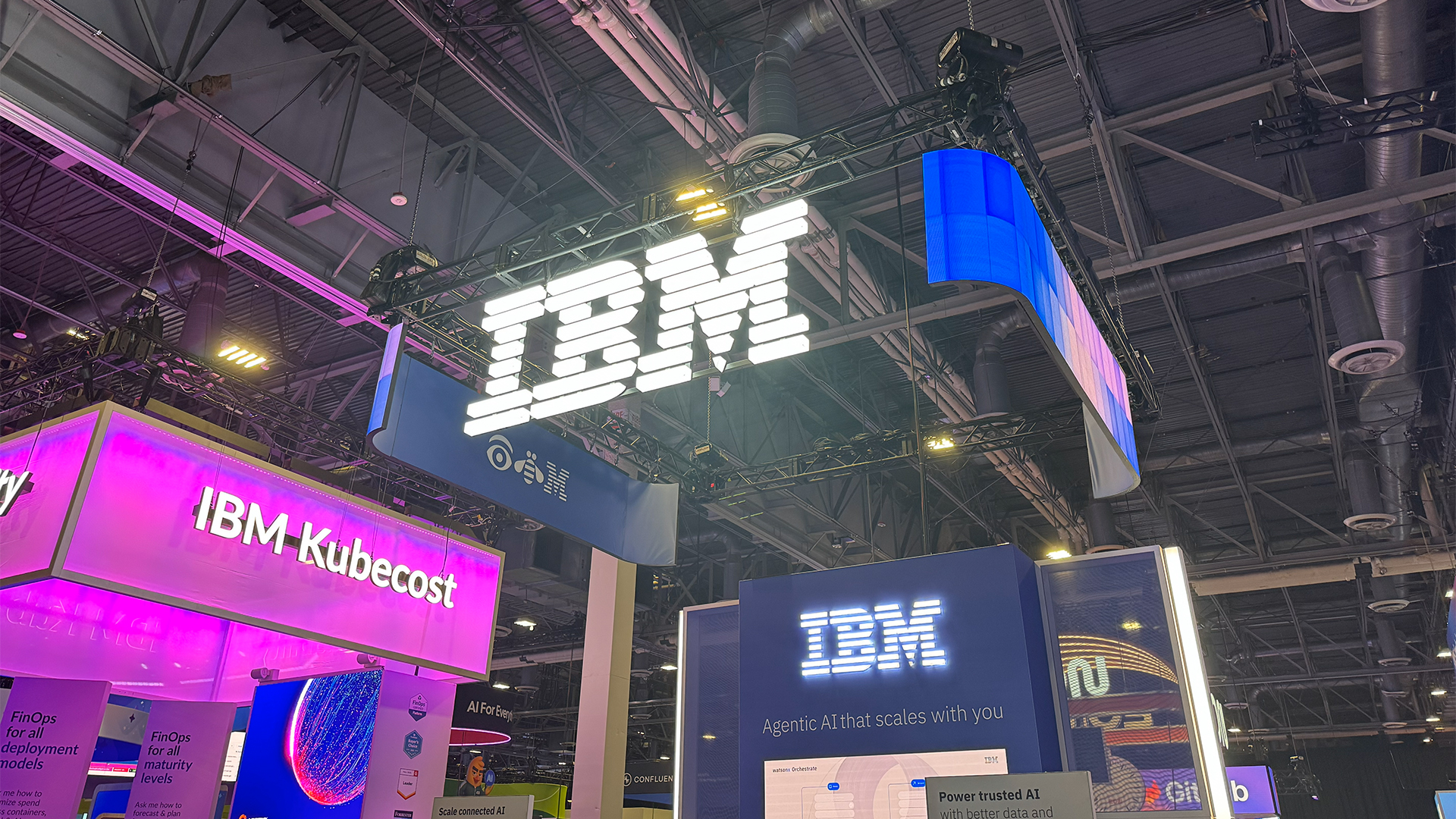IBM server sale is a logical result of commodity IT
Inside the enterprise: If IBM sells its server business to Lenovo, it will further prove the money is not in hardware.

Over the last few weeks, rumours have grown that IBM will sell off its lower-end x86 server business, with Chinese manufacturer Lenovo in the frame as the most likely buyer.
If the deal goes through, this will not be the first time that IBM has sold off a hardware unit, or indeed sold a hardware unit to Lenovo. Its PC division, makers of the ThinkPad range of laptops, has already gone down that path, with IBM selling up to the Chinese company back in 2004, although Lenovo still uses the ThinkPad brand.
That deal has helped propel Lenovo on to become one of the world's top PC brands. And, in some ways, the server business IBM might be looking to sell off is closer to the PC business than its higher-end enterprise products.
Already, there are more similarities between commodity servers and commodity PCs than there are differences.
Vendors can add differentiating features, such as lights out management, hot-swappable parts and different physical form factors. But the Intel-based, x86 server is essentially a big PC with a Xeon processor.
A few years ago, for example, Apple pulled out of making specialist servers, despite the fact that its XServe range was popular with reviewers and IT teams. Now, the company simply sells a beefed-up version of its Mac Mini, and Mac users can download the server software as an app for a nominal fee.
Perhaps Apple, with its specific niche market, is a poor example. But in other areas, basic servers are commoditising more and more rapidly. ARM is working on low-powered server chips, which will be closer to the chips powering smartphones than those powering mainframes.
Sign up today and you will receive a free copy of our Future Focus 2025 report - the leading guidance on AI, cybersecurity and other IT challenges as per 700+ senior executives
This is a market where the competition has forced the pricing down to the point where profits are hard to come by.
Many smaller businesses are now running commodity network storage drives in lieu of servers. These are typically based around lower-power, low cost chips such as Intel's Atom, and Linux operating systems.
The growth of the cloud is another factor. More businesses are moving their applications to on-demand services, whether from firms such as Salesforce.com or NetSuite, or consumer-type services from the likes of Google and Dropbox. The need for the basic "server under the desk" is diminishing. At the other end of the spectrum, companies such as Google, that use vast numbers of x86 servers, find it is cheaper to build their own than to buy them from a vendor.
"It should come as no surprise that IBM may be looking to get out of the X86 server market. This is a market where the competition has forced the pricing down to the point where profits are hard to come by," Ian Murphy, analyst at Creative Intellect Consulting, told IT Pro.
"Any vendor has to take a commercial view where it balances being seen in a market against the profits. In the x86 world, those two lines are closing rapidly."
Of course, if the deal does go through, IBM will be left with its higher-end servers, including its mainframe business. But for smaller companies, branch offices, and even workgroups in enterprises, an x86 server may be less attractive than a simple device that can act as an internet gateway, security appliance and perhaps local and backup storage, connecting into the cloud. And there are plenty of companies that would be as happy to buy that from Lenovo, as from Big Blue.
Stephen Pritchard is a contributing editor at IT Pro.
-
 Redefining resilience: Why MSP security must evolve to stay ahead
Redefining resilience: Why MSP security must evolve to stay aheadIndustry Insights Basic endpoint protection is no more, but that leads to many opportunities for MSPs...
-
 Microsoft unveils Maia 200 accelerator, claiming better performance per dollar than Amazon and Google
Microsoft unveils Maia 200 accelerator, claiming better performance per dollar than Amazon and GoogleNews The launch of Microsoft’s second-generation silicon solidifies its mission to scale AI workloads and directly control more of its infrastructure
-
 IBM’s Confluent acquisition will give it a ‘competitive edge’ and supercharge its AI credentials
IBM’s Confluent acquisition will give it a ‘competitive edge’ and supercharge its AI credentialsAnalysis IBM described Confluent as a “natural fit” for its hybrid cloud and AI strategy, enabling “end-to-end integration of applications, analytics, data systems and AI agents”.
-
 IBM layoffs loom as ‘single-digit percentage’ of global workforce set for cuts
IBM layoffs loom as ‘single-digit percentage’ of global workforce set for cutsNews Headcount at the cloud giant has been decreasing steadily in recent years
-
 ‘There is no law of computer science that says that AI must remain expensive and must remain large’: IBM CEO Arvind Krishna bangs the drum for smaller AI models
‘There is no law of computer science that says that AI must remain expensive and must remain large’: IBM CEO Arvind Krishna bangs the drum for smaller AI modelsNews IBM CEO Arvind Krishna says smaller, more domain-specific AI models have become the most efficient and cost-effective options for enterprises.
-
 IBM puts on a brave face as US government cuts hit 15 contracts
IBM puts on a brave face as US government cuts hit 15 contractsNews Despite the cuts, IBM remains upbeat after promising quarterly results
-
 Lenovo: Enterprises aren't ready to take advantage of AI productivity gains
Lenovo: Enterprises aren't ready to take advantage of AI productivity gainsNews Survey by Lenovo reveals concerns about AI readiness among tech leaders at their own employers
-
 IBM completes HashiCorp acquisition after regulatory approval
IBM completes HashiCorp acquisition after regulatory approvalNews IBM has completed its $6.4 billion acquisition of cloud automation and security firm HashiCorp,
-
 IBM eyes Oracle expertise gains with latest acquisition
IBM eyes Oracle expertise gains with latest acquisitionNews The deal aims to help IBM address the complexities of public sector cloud transformation
-
 UK regulator to investigate IBM takeover of HashiCorp
UK regulator to investigate IBM takeover of HashiCorpNews The CMA is concerned that the merger could affect competition in the cloud services market